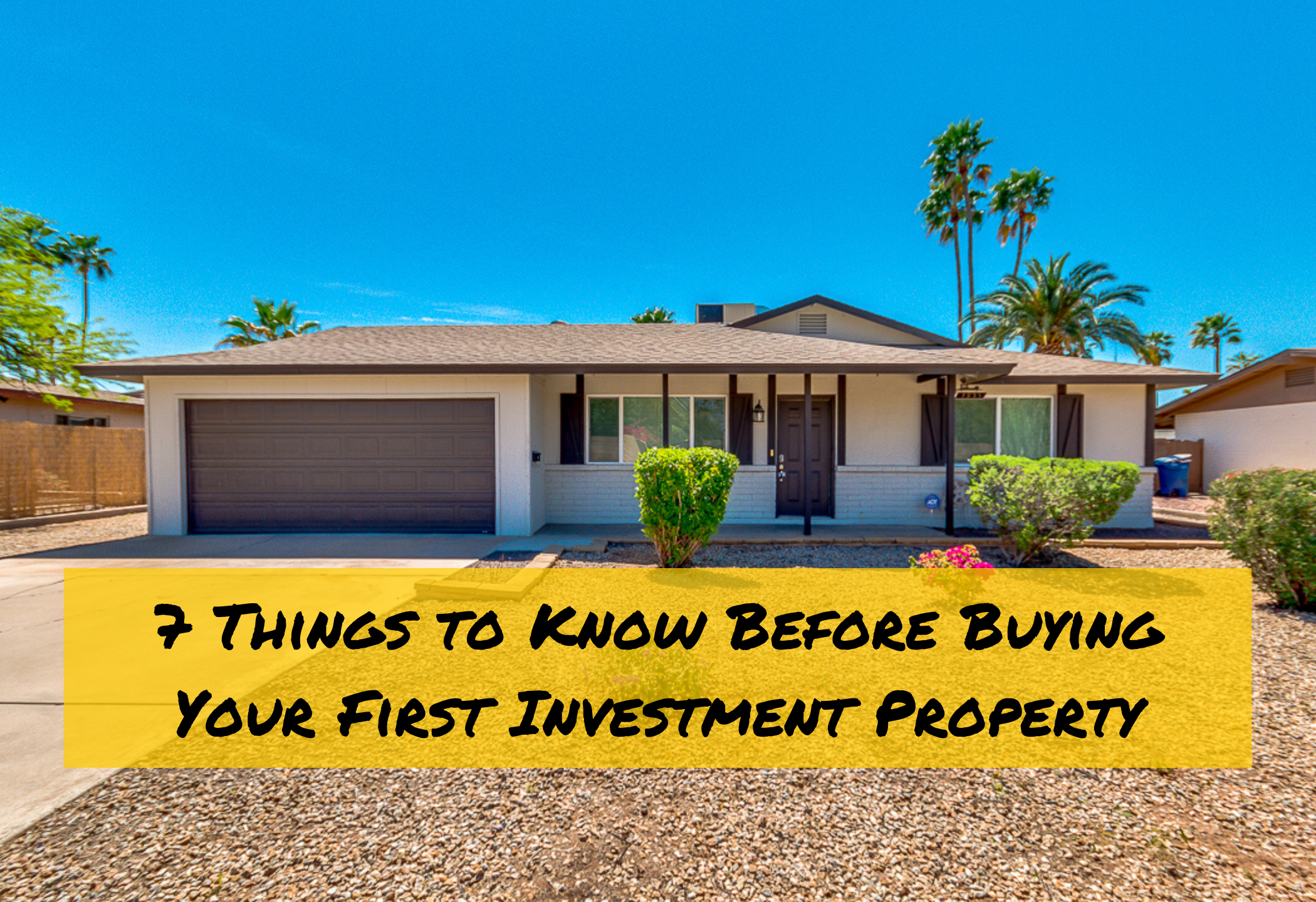
Buying your first investment property is a big step for any investor. It’s one of the largest assets you can buy and can be a great way to generate income and build wealth over time. Let’s take a look at the 7 things to know before buying your first investment property as well as some challenges along the way. Purchasing an investment property is quite different than purchasing a primary home and we will highlight these unique differences to make the process as smooth as possible.
Buying an investment property isn’t for everyone, and it’s not the only way to invest in real estate. So, before you start looking for your first investment property, take a step back and decide if it’s the right way for you to get into real estate. Not only do you have to consider the mortgage and operating costs, but you also have to think about the tenants, who can either make or break your investment.
There is typically more of a risk involved when investing in a rental property, but with a bigger gamble also comes the opportunity for a bigger reward, and this is especially true with an investment property. There are a few things to consider:
If you can handle these four challenges, an investment property may be the right choice for you. However, if you’re looking for something with a steady income or liquidity, you may want to consider a real estate investment trust (REIT). REITs are companies that use investors’ money to buy and lease real estate.
Perhaps one of the most important steps in the 7 things to know before buying your first investment property as a new real estate investor, you’ll need to assemble your dream team. This begins with an accredited local real estate agent who has extensive knowledge of dealing with investors. You’ll also need a good real estate attorney, insurance agent, home inspector, appraiser, and more, but your real estate agent can be a good source for these professionals.
Often people consider partnering with friends instead of an investment loan, although investors need to be careful when choosing partners. Be sure to look into the implications of a partner agreement.
For first time investors, consider investing in a low-cost, low-maintenance condo or single-family home. Even if you are ready to invest up to a million dollars, it’s always a good idea to start in the lower to mid-range brackets. Multifamily properties typically achieve higher profits, but single family homes tend to offer more equity appreciation potential.
Geographical location, price point, and effort you’re willing to put in are important as well. You might want to focus on a certain neighborhood or near highly-rated schools. Remember that you will need 20% down, closing costs, and a few months’ worth of reserve payments in the bank and you will need to set a budget that includes renovations. You can typically find the best value in properties that need some repairs, but this creates additional work for you. Or, you can focus on rent-ready properties. To search for sale properties visit our home search tool HERE.
If you plan to pay for your investment property upfront, you can skip this section. If not, you’re going to need to find out where the money is going to come from.
It’s a good idea to get preapproved for a loan or financing source before you search for properties because you must meet excellent qualifications and can be very different from purchasing a primary home.
It’s important to calculate whether or not a potential property will generate positive cash flow from day one. To do so, it’s very important to include when the property will be vacant from time to time as well as maintenance here and there. For the sake of this explanation, we’ll put 15% aside of rental income for vacancy and maintenance. Therefore, good cash flow circulation would look something like this:
This is by no means the only way to calculate cash flow for your rental property, however, it may be a good place to start narrowing down your list of properties that could generate decent cash flow.
Time is valuable and you have to decide if paying for a property manager is worth it to you. The downside of hiring a property manager is cost. Typically, property managers require 8-10% of the collected rent and some property managers charge a flat fee. If your property’s cash flow isn’t huge, this could take a serious chunk out of your profit margin. Your property manager should:
Depending on who you are, investing in a property manager can be absolutely worth it. If you prefer to be hands-on, give it a try without a property manager. On the other hand, you can employ a property manager to handle the day-to-day to truly enjoy that passive income.
The important thing to know is, no one is a perfect rental property investor at their first try. You will make mistakes, the important thing is to learn from them. Educate yourself as much as possible and remember, there is no substitute for real-world experience.
Real estate is a powerful way to grow but starting can be daunting. Do you have questions about investing in a rental property? Make contact with one of our experts today HERE. We’ll reach out to you within the next 24-48 hours and begin the journey!